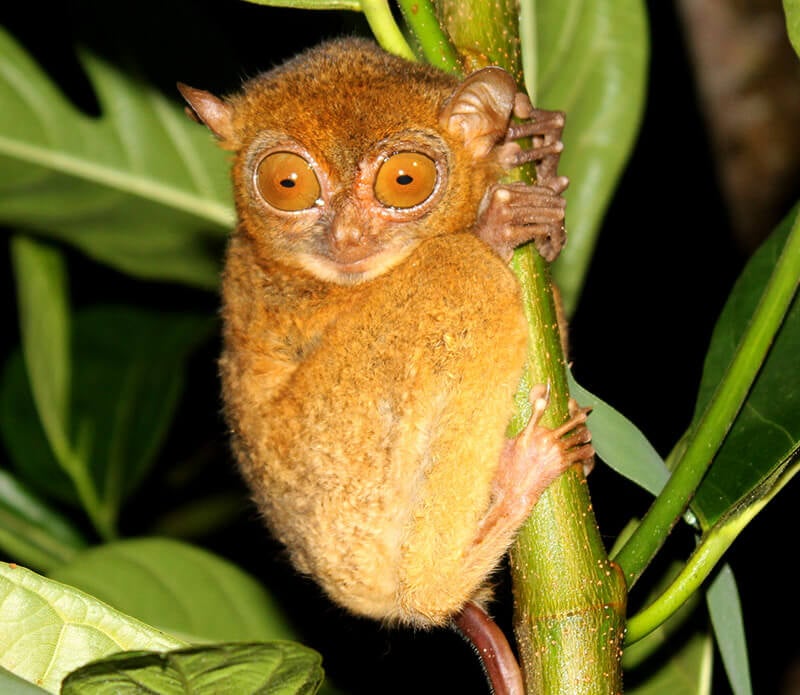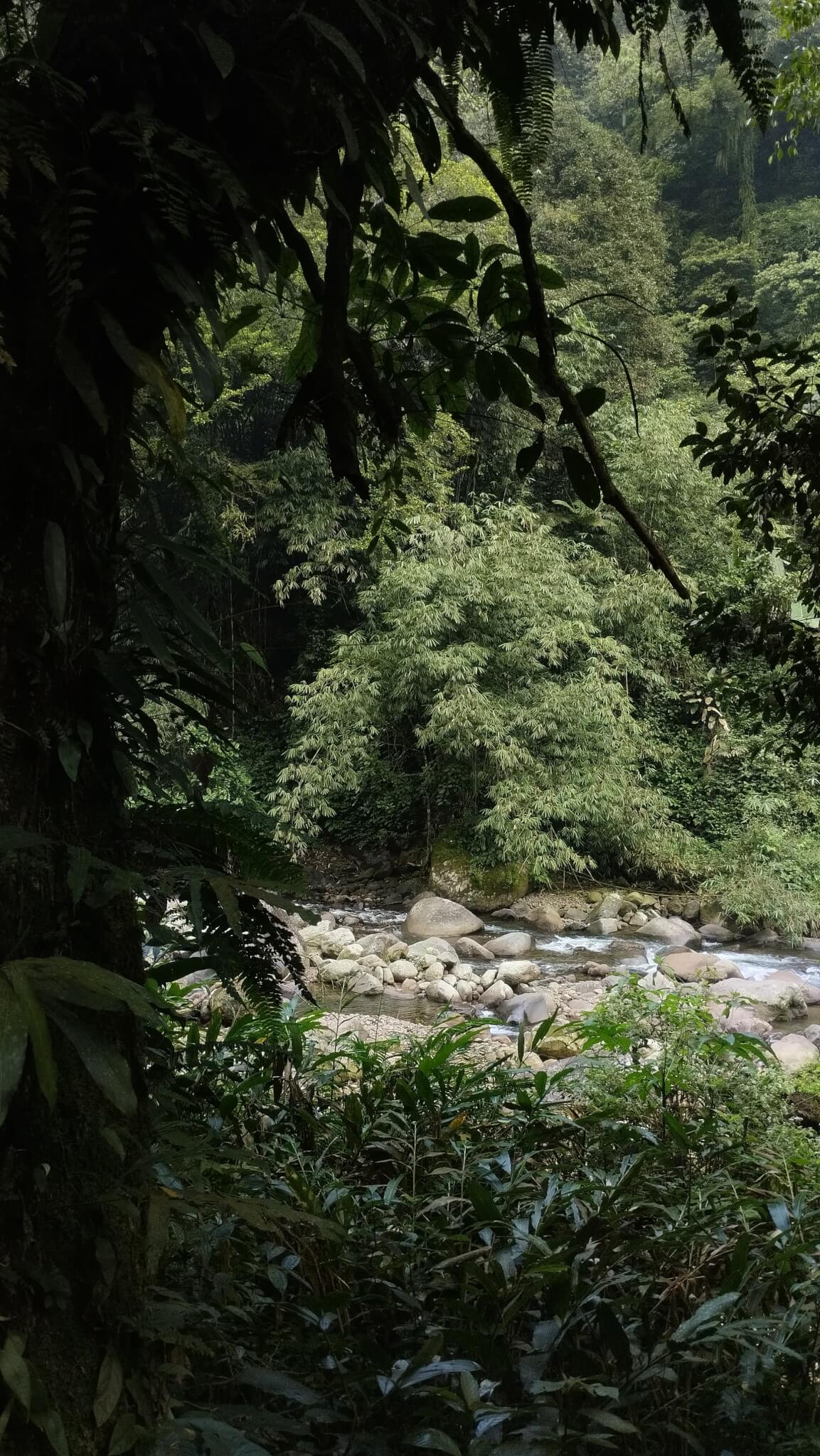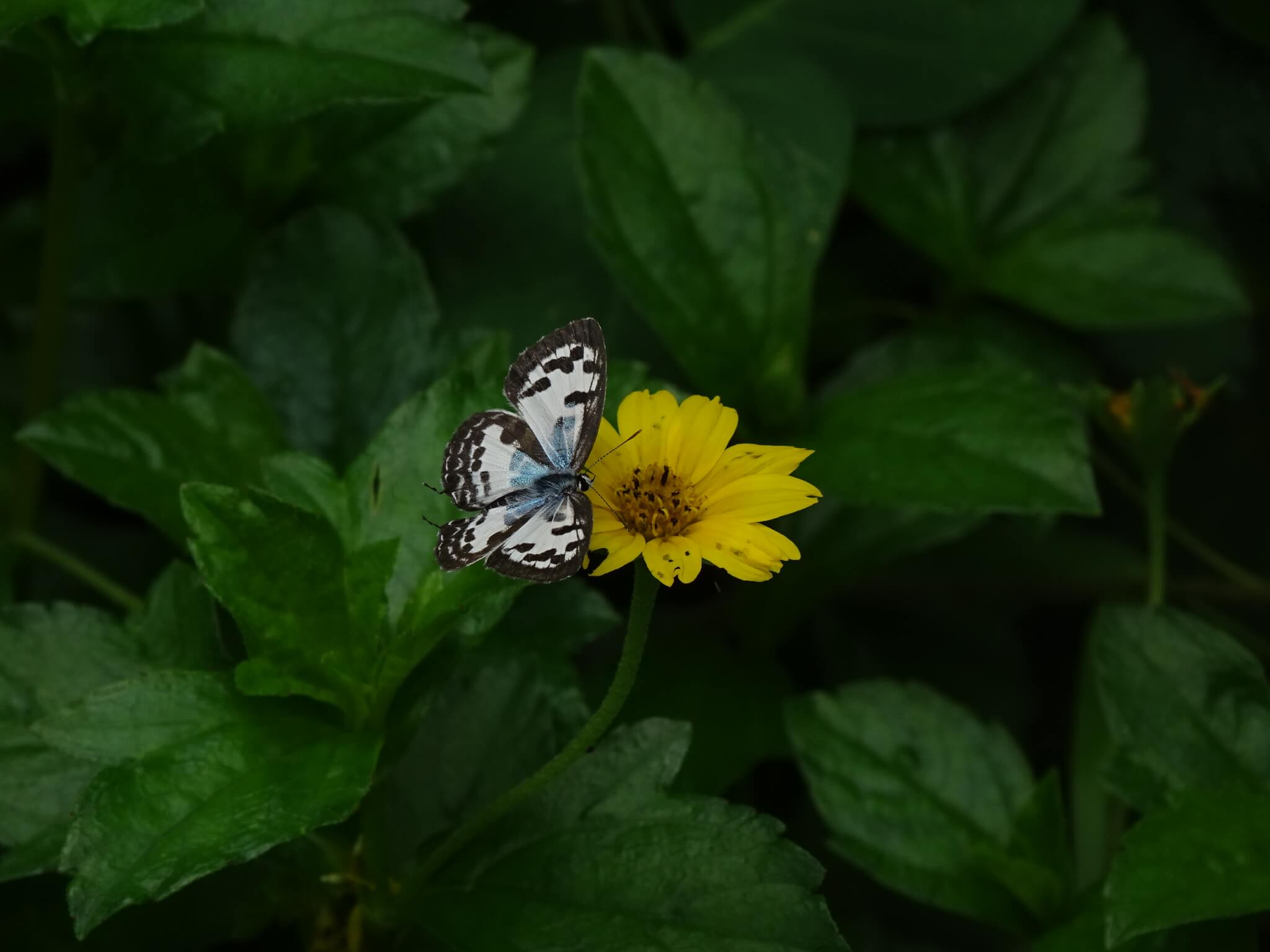


Mentilin, scientifically known as Cephalopachus bancanus bancanus, is a tiny primate cherished by the people of Bangka Island. With its large eyes, small body, and unique characteristics, it captivates anyone lucky enough to encounter it. Beyond its physical charm, the Mentilin has been designated as the faunal emblem of the Bangka Belitung Islands Province, under the decree of the Indonesian Ministry of Home Affairs No. 522.53-958/2010. However, behind the beauty and uniqueness of this species lies a tragic story of how its life is increasingly threatened by human activities and environmental degradation.
Physically, the Mentilin is distinguished by its exceptionally large eyes, almost the size of its brain. These sharp eyes are its primary tool for hunting prey at night, as the Mentilin is a nocturnal animal. During its hunts, it relies heavily on its acute hearing to detect the sounds of nearby insects. Then, with incredible precision, it leaps and seizes its prey using its long, powerful hands. In its daily activities, the Mentilin moves nimbly from tree to tree, especially during the night when it is most active in foraging and interacting with its environment.
Despite its impressive agility, the Mentilin's life in the wild is now facing serious challenges. Bangka Island, known for its tin production, has experienced massive deforestation since the 18th century due to extensive tin mining, which continues to this day. Additionally, in the 19th century, pepper (Piper nigrum) and rubber (Hevea brasiliensis) plantations began to dominate the island's landscape, displacing the Mentilin’s natural habitat. Over the past two decades, the situation has worsened with the expansion of oil palm plantations and illegal tin mining, further exacerbating environmental damage.
Today, Bangka's forests have been fragmented into isolated patches, with much of the land now filled with kulong (large, water-filled craters left behind by tin mining). The island has ironically earned the nickname "Island of a Thousand Kulong," symbolizing the destruction of the Mentilin's natural habitat. Where Mentilins once thrived in primary forests, they are now forced to adapt to secondary forests, rubber plantations, or even agricultural land, areas that are increasingly shrinking due to widespread land conversion.
As an arboreal species (living in trees), the Mentilin struggles immensely when its forests are converted into mining areas or oil palm plantations. The tall vegetation it relies on for roosting and movement is rapidly disappearing, and this loss has severely impacted its lifestyle and population on Bangka Island. Even rubber plantations, which once provided supplementary habitats for the Mentilin, are now being converted into mines or oil palm estates that offer higher economic returns.
This widespread deforestation has led to a significant decline in the Mentilin population. According to data from The IUCN Red List of Threatened Species, the Mentilin is currently listed as Endangered (EN), indicating that it is on the brink of extinction if its habitat continues to degrade. The primary threats to its survival come from habitat loss due to illegal tin mining and the conversion of forests into oil palm plantations. Additionally, illegal hunting and the wildlife trade are significant factors accelerating the Mentilin's population decline.
Hunting of the Mentilin remains prevalent in some areas of Bangka Island. These animals are often captured and sold as exotic pets due to their unique appearance and appeal. However, the Mentilin is a highly sensitive wild animal that is difficult to care for in domestic settings. Most Mentilins sold as pets do not survive long due to the stress they experience in artificial environments. Furthermore, there are still ancient beliefs in some local communities that regard the Mentilin as a harbinger of bad luck or a pest that damages crops. This has led to the intentional killing of Mentilins, despite conservation regulations and awareness programs aimed at protecting them.
To save the Mentilin from the brink of extinction, more intensive and comprehensive conservation efforts are required. One approach is to preserve rubber forests as an alternative habitat for the Mentilin. Although not their original habitat, rubber forests have proven to be a viable refuge for the species. The structure of rubber forests, which resembles that of secondary forests, provides the tall vegetation necessary for the Mentilin’s daily activities.
However, the challenge in preserving rubber forests is their declining commercial value. Many farmers in Bangka are opting to convert their rubber lands into mines or oil palm plantations, which offer higher economic returns. To address this issue, the government and conservation organizations must provide incentives to farmers who maintain their rubber forests. Socioeconomic support and research that offer financial benefits to landowners could be an effective solution for ensuring the sustainability of rubber forests and protecting the Mentilin.
Additionally, education and community awareness programs about the importance of Mentilin conservation must be continuously promoted. Local communities need to be empowered to play an active role in conservation efforts, rather than being mere spectators. By increasing public knowledge about the Mentilin’s legal protection status and the penalties for violators, it is hoped that illegal hunting and wildlife trade can be reduced.
The Mentilin is an invaluable treasure of Bangka Island, but its increasingly threatened existence reminds us of the importance of maintaining ecological balance. Deforestation, hunting, and climate change are real threats that could destroy the ecosystem in which the Mentilin lives. It is time for us to take more proactive measures to protect this species before it becomes just a story behind the nickname “Island of a Thousand Kulong.”
[This article was also published in the Bangka Pos newspaper (Tuesday, September 10, 2024) and on the website https://bangka.tribunnews.com/2024/09/08/mentilinku-sayang-mentilin-yang-malang]


 ID
ID
 EN
EN



